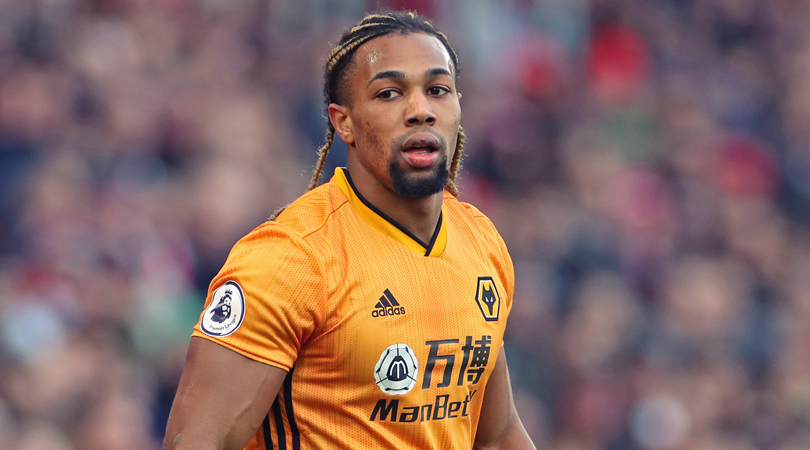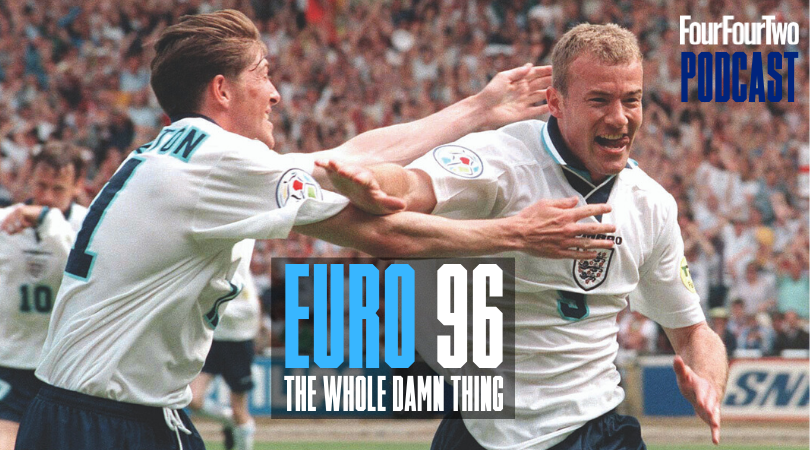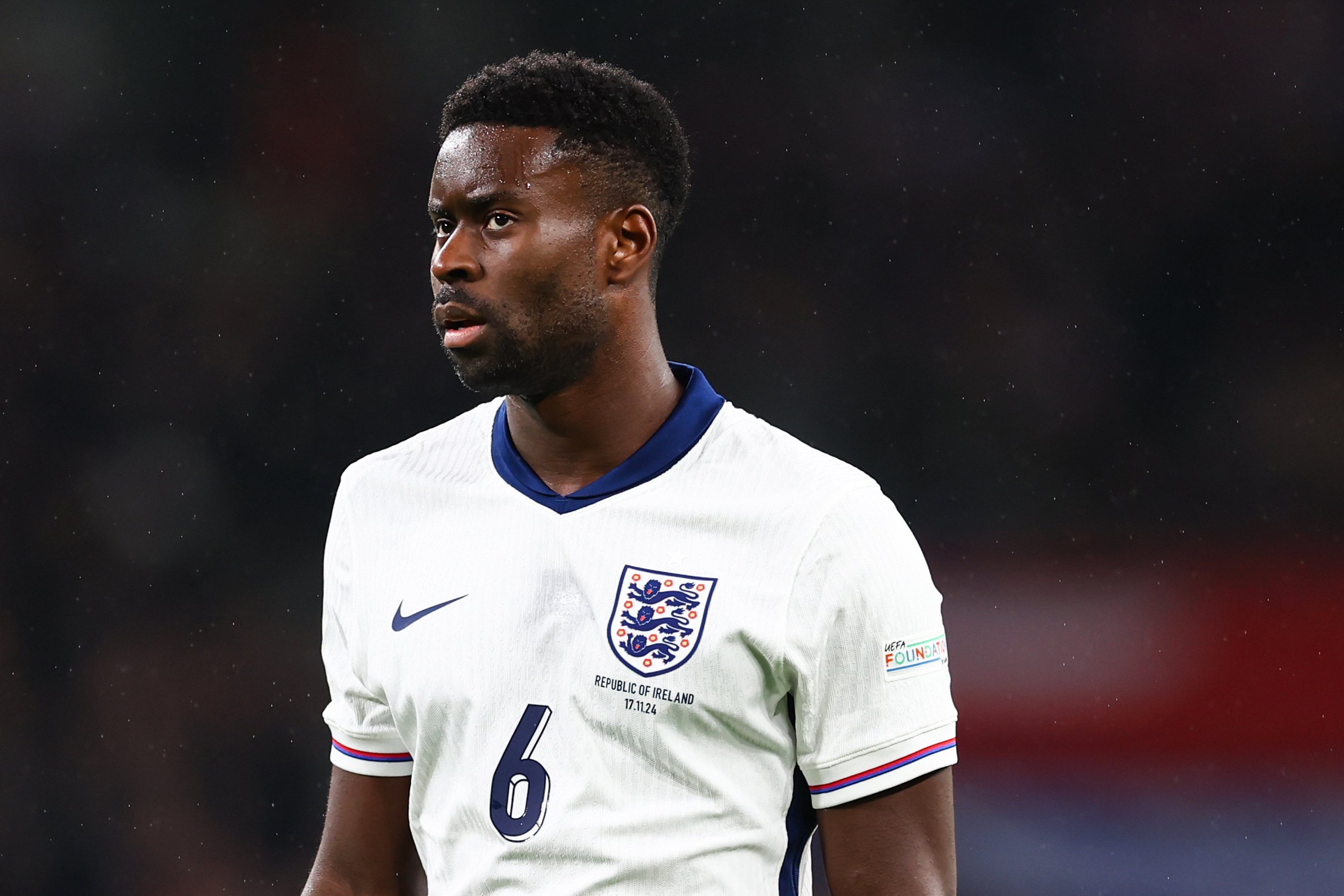Adama Traore is taking the Premier League by storm – but his rise hasn't been a simple story
The rise and rise of Wolves' standout player this season is a lesson not just to young players, but coaches too

Adama Traore has gone supernova. He's blazing across the Premier League.
Traore teased supporters for the first few years of his career, so much so that his profligacy reduced him to a punchline. Now, he’s a problem for which few Premier League teams seem to have answer; a hugely dangerous player, who seems to become increasingly so by the game.
As a description of his rise, that’s misleading. It’s too simple. In fact, whenever potential is discussed it’s usually in similarly reductive terms. It’s always assumed that because a player has certain attributes at a particular age, that his abilities will just grow even over time. The mistake is to believe in an entirely natural process – to think that a footballer’s journey through the game is in some way predetermined. Or, in this instance, to assume that Traore was always destined to perform at his current level.
What a high level that is, too. He terrorised Tottenham back in December – bullied them to the point where they were almost helpless – and it was his incendiary qualities at the heart of Wolves' comeback against Manchester City after Christmas. His role in this weekend’s win over Southampton may have been against a lesser opponent, but it was just as descriptive.
Again, the tenets of Traore’s game blurred together with devastating effect, producing Wolves' first and third goals at St Mary's. On each occasion, he showed that new presence of mind to make his contribution really count. He made the right decisions at the right moments. What a difference. People used to roll their eyes when they thought of him, now they can't wait to see what he does next.
Earlier in the season, The Athletic’s David Ornstein spoke to Tony Pulis about Traore. He talked of a model professional and a thoroughly decent human-being, but also described someone with a prohibitive lack of self-belief. Apparently, Pulis used to play Traore on whichever wing was nearest the dugout when they were together at Middlesbrough, so as to remain as close to him as possible and coach him through games.
There are other stories from that time, too, and presumably many more from the last eighteen months at Wolves. Pulis mentioned video sessions in which he would go through Traore's errors, with the two working laboriously to correct the flaws in his game. Which is to say nothing of the hours on the training ground which followed, during which his bad old habits would have been broken by mechanical repetition. Nor the time and effort that Traore has put in with Nuno Espirito Santo and his staff since moving clubs.
The best features, fun and footballing quizzes, straight to your inbox every week.
What it portrays – even with such slender detail – is just how much effort is involved in any player realising his potential. It shows how many people are involved in that process, too, and what a prisoner a player is to the quality of those relationships.
The situation depicted by Pulis suggests that Traore’s previous coaches had neglected him. Or, at the least, that they had failed to be attentive in a way that would nourish his talent. David Ornstein also reported that one of those former coaches believed that the player wasn’t intelligent enough which, in addition to exposing a malignant attitude, also conveys that individual’s unwillingness to get to know him properly. Unfortunately, football's short-termism probably makes that a common situation.
In the first instance then, Traore needed the patronage of the right manager. He needed someone who was willing to look beyond his imperfections. A lot of coaches in that situation would have just passed the buck. They’d have replaced Traore with a less challenging player or, instead of trying to re-engineer his mindset, found a quick solution in the transfer market.
The same is really true at Wolves, where resources are hardly scarce. Traore arrived for a large fee, so there was always an implied need for patience, but that shouldn’t temper praise for the work Santo has done or the perseverance he and his staff have shown. Traore began life at Molineux really just as an impact player. He’d come on in games and, generally speaking, pose the same challenge to a full-back every time, using that twitching acceleration to find a crossing angle.
Gradually, that’s changed. Today he’s an automatic starter, which speaks to the quality of his performances, but his threat is also so much broader. He’s beating defenders in different ways, carrying the ball into different areas of the pitch and combining with teammates in a much more responsive, reactive way. He's applying his talent efficiently. He's not just playing on rails, shifting his feet and standing the ball up, but forming proper, three-dimensional understandings which, in turn, are breeding unique passages of play.
Raul Jimenez has been part of that, so too Matt Doherty. A player is only as effective as his team’s structure allows him to be and Jimenez, in particular, has really adapted well to Traore’s changing role.
But none of that would matter if not for the player himself. What this episode really describes is just how pliable Traore has allowed himself to be. If he hadn’t been interested in Tony Pulis’ corrections, for instance, what would they really be worth? If he was content just to be an impact player at Wolves, then that’s what he would still be now.
Context is very important. Looking around the Premier League, there are all sorts of players who should be more than they are. Every team has at least one. They’re players whose contributions aren’t commensurate with their talent, but for whom that gap never seems to narrow. Sometimes it’s because of injury or personal circumstances. Often, however, they just aren’t quite as dedicated to their craft. They don’t want to do one-on-one analysis and their egos won't allow them to be criticised, even in a productive way.
There’s a story in Raphael Honigstein’s Das Reboot which has some relevance here. It concerns the Footbonaut at Borussia Dortmund and the differing attitudes towards it from certain players. Mario Gotze, wrote Honigstein, was obsessed with it in his late teens. He loved the touch and technique drills and became obsessed with improving his scores. Other players were scornful, though, wondering why a player who already had a professional contract and was already touted for the top of the game was bothering. He'd "made it".
The anecdote is a parable of sorts and a rather trite one at that. But it illustrates a key difference between some players, using behaviours which – most likely - will determine how much of their ability they’re able to realise. Some have the desire and humility to improve, others are happy to be what they are.
Clearly, Adama Traore is an example of the latter. His development as a player over the last few months itemises the process of talent fulfilment in more detail than we typically care to consider. His form is the product of all sorts of work by many different people. Most importantly, though, his personality has evidently allowed that attention to make a difference.
While you're here, why not take advantage of our brilliant subscribers' offer? Get the game's greatest stories and best journalism direct to your door – for less than £3.50 an issue. Cheers!
NOW TRY...
QUIZ Can you name every Premier League top four and EFL promoted team of the 2010s?
NEW ISSUE Check out our new issue, a Euro 96 special
GUIDE Premier League live stream best VPN: how to watch every game from anywhere in the world
Seb Stafford-Bloor is a football writer at Tifo Football and member of the Football Writers' Association. He was formerly a regularly columnist for the FourFourTwo website, covering all aspects of the game, including tactical analysis, reaction pieces, longer-term trends and critiquing the increasingly shady business of football's financial side and authorities' decision-making.
 Join The Club
Join The Club






